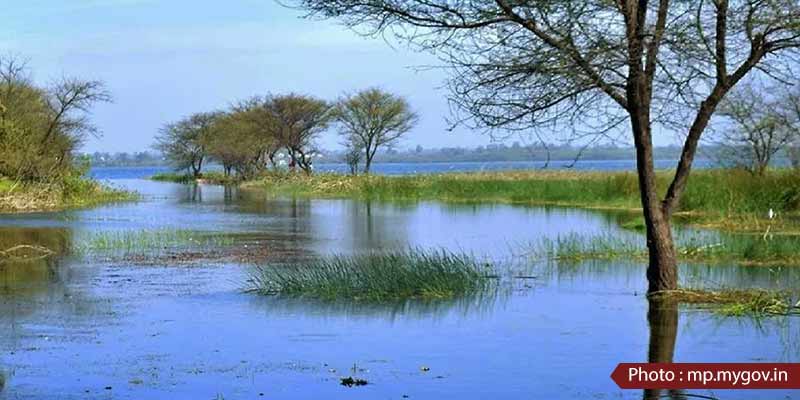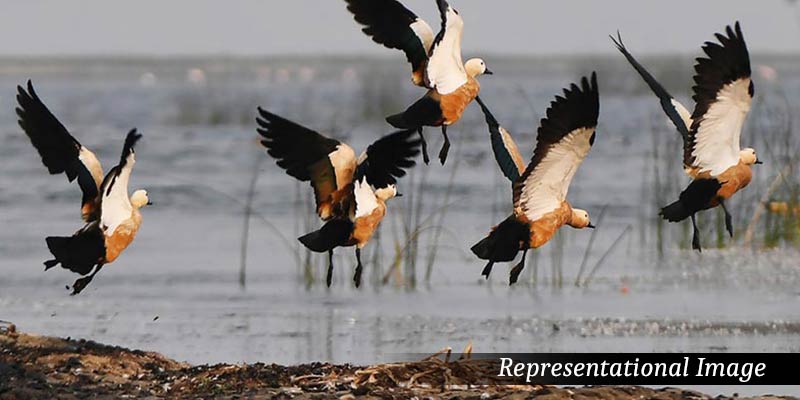- India
- Jan 05
Indore, Bhopal, Udaipur nominated for Ramsar Wetland City Accreditation
• India has nominated Indore, Bhopal and Udaipur for the Wetland City Accreditation (WCA) scheme under the Ramsar Convention.
• The accreditation helps cities gain international recognition for their efforts to protect their natural or human-made wetlands.
• This will also provide an opportunity for cities that value their natural or human-made wetlands to gain international recognition and positive branding opportunities for their efforts in demonstrating strong positive relationships with wetlands.
• These are the first three Indian cities nominated for WCA based on the proposals received from state wetlands authorities in collaboration with municipal corporations.
• The wetlands situated in and around these cities provide a plethora of benefits to their citizens in terms of flood regulation, livelihood opportunities, and recreational and cultural values.
• Sirpur Wetland (Ramsar site in Indore), Yashwant Sagar (Ramsar site closer to Indore), Bhoj Wetland (Ramsar Site in Bhopal), and several wetlands in and around Udaipur are lifelines to these cities.
• Sirpur Lake has been recognised as an important site for water bird congregation and is being developed as a bird sanctuary. A strong network of more than 200 wetland mitras is engaged in bird conservation and sensitising the local community to protect sarus crane.
• Bhoj Wetland is Bhopal’s lifeline, equipped with the world-class wetlands interpretation centre, Jal Tarang. The Bhopal Municipal Corporation also has a dedicated Lake Conservation Cell. It is supported by a network of more than 300 wetland mitras engaged in wetland management and the conservation of sarus cranes.
• Udaipur in Rajasthan is surrounded by five major wetlands — Pichola, Fateh Sagar, Rang Sagar, Swaroop Sagar, and Doodh Talai. These wetlands are an integral part of the city’s culture and identity, helping maintain the city’s microclimate and providing a buffer from extreme events.
What is the Ramsar Convention?
• The Ramsar Convention is an international treaty signed by 172 countries to protect wetlands. It is named after the city in Iran where it was signed, and it began with 18 countries in 1971.
• The convention is one of the oldest inter-governmental accords for preserving the ecological character of wetlands. Also known as the Convention on Wetlands, it aims to develop a global network of wetlands for the conservation of biological diversity and for sustaining human life.
• It is one of the largest international agreements, after the Convention on Biological Diversity (CBD, 196 countries) and the UN climate agreement (UNFCCC, 197 countries).
• The Ramsar List is the world’s largest network of protected areas.
• There are over 2,400 Ramsar Sites around the world. The first Site was the Cobourg Peninsula in Australia, designated in 1974. The largest Sites are Rio Negro in Brazil (120,000 sq km), and Ngiri-Tumba-Maindombe in the Democratic Republic of Congo and Queen Maud Gulf in Canada. These Sites each cover over 60,000 sq km.
Wetland City Accreditation scheme
• The contracting Parties to the Convention have agreed to the conservation and wise use of wetlands in their territories.
• Recognising the importance of cities and urban wetlands, the Convention has introduced a Wetland City accreditation scheme.
• This voluntary scheme provides an opportunity for cities that value their natural or human-made wetlands to gain international recognition and positive publicity for their efforts.
• To be formally accredited, a candidate for the Wetland City Accreditation should satisfy the standards used to implement each of the six international criteria mentioned in operational guidance for WCA of the Ramsar Convention on Wetlands.
• The Wetland City Accreditation scheme will encourage cities in close proximity to and dependent on wetlands, especially Wetlands of International Importance, to highlight and strengthen a positive relationship with these valuable ecosystems, for example through increased public awareness of wetlands and participation in municipal planning and decision-making.
• The accreditation scheme should further promote the conservation and wise use of urban and peri-urban wetlands, as well as sustainable socio-economic benefits for local people.
Additional read:
The vital role of wetlands for people and planet
Wetlands are ecosystems where water is the primary factor controlling the environment and the associated plant and animal life. Wetlands provide a wide range of important resources and ecosystem services such as food, water, fibre, groundwater recharge, water purification, flood moderation, erosion control and climate regulation.
Manorama Yearbook app is now available on Google Play Store and iOS App Store


